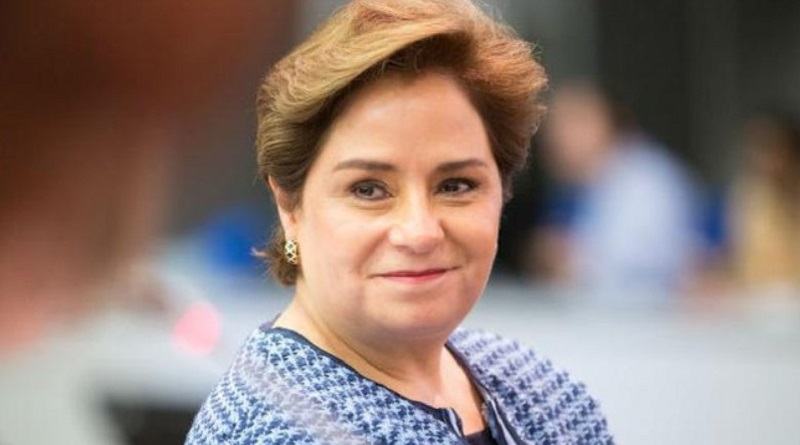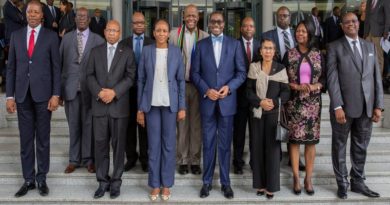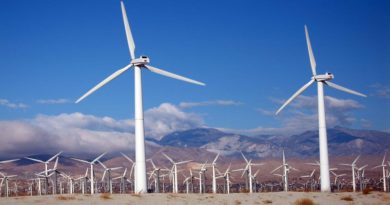Paris: 60 Countries accounting for close to 48 percent of emissions have joined Agreement
A major milestone towards the early entry into force of the Paris Agreement was achieved today as 31 Parties deposited their instruments of ratification to the climate deal bringing the number to 60.
Elated with the development, United Nations Framework Convention on Climate Change Executive Secretary, Patricia Espinosa thanked the 31 governments who today took the number of Parties to the Paris Climate Change Agreement past the key threshold of 55.
For the treaty to enter into force, at least 55 Parties covering at least 55 per cent of the global greenhouse gas emissions are required to join the Agreement.
At a special event organized by the UN Secretary-General, Albania, Antigua and Barbuda, Argentina, Bangladesh, Belarus, Brazil, Brunei Darussalam, Dominica, Ghana, Guinea, Honduras, Iceland, Kiribati, Madagascar, Mexico, Mongolia, Morocco, Namibia,Niger, Panama, Papua New Guinea, Senegal, Singapore, Solomon Islands, Sri Lanka, Swaziland, Thailand, Tonga, Uganda, United Arab Emirates, and Vanuatu deposited their instruments of ratification, acceptance, approval or accession of the Paris agreement.
“As of 21 September we have 60 Parties who have deposited the relevant instruments adding to the 29 who deposited their instruments over the past few months—this is an extraordinary momentum by nations and a clear signal of their determination to implement Paris now and raise ambition over the decades to come,” she said.
“We now look forward to the final threshold that will, 30 days later, trigger entry into force. Namely, at least 55 per cent of the global greenhouse gas emissions also being covered by Parties who have ratified, accepted, approved or acceded to the Paris Agreement with the UN’s Depositary,” added Ms Espinosa.
“Today we can say with ever more confidence that this historic moment is likely to come very soon, perhaps even by the time governments meet for the next round of climate negotiations in Marrakech, Morocco in November,” she said.
“Here many issues need to be progressed, ranging from the development of a rule book to operationalize the agreement up to building confidence among developing countries that the $100 billion pledged to them by developed nations is truly building,” said Ms Espinosa.
“The adoption, signing and ratification of the Paris Agreement are wonderful news but by no means the end. Securing a climate-safe world and supporting the realization of the Sustainable Development Goals is a multi-decadal effort of constant improvement. But we are out of the blocks and off down the track with enthusiasm, creativity and determination to make the transformation the people of this world expect and need,” she added.
The Paris Agreement was universally adopted in December 2015 and signed by many Parties in early 2016. The first ratifications occurred in April 2016. The UNFCCC secretariat Paris Agreement tracker now records the 60 countries which have ratified accounting for 47.76 percent of global emissions, according to the list provided by Parties to the agreement.
Entry into force will trigger a variety of procedural activities. For example it will trigger the first Conference of the Parties serving as the Meeting of the Parties to the Paris Agreement or in short the CMA1.
The climate action plans, or Intended Nationally Determined Contributions (INDCs) submitted in the run up to the Paris conference, are transformed into Nationally Determined Contributions (NDCs).
Governments will also be obligated to take action to achieve the two temperature limits enshrined in the agreement—staying well below 2 degrees C and pursuing efforts to limit the temperature increase to 1.5C over pre-industrial levels, this century.
The next key milestone, following ratification and entry into force, is likely to be the swift and successful conclusion of negotiations to develop the rule book that will allow implementation to begin in earnest.
“Daily, positive announcements of climate action by nations but also companies, investors and cities, regions, territories and states have been a hallmark of 2016. The urgency is to evolve this ever higher in the years and decades to come,” said Ms Espinosa.
In addition, 14 countries, representing 12.58 percent of emissions, committed to joining the agreement in 2016, virtually assuring that the Agreement will enter into force this year.
“This momentum is remarkable,†Mr. Ban said. “It can sometimes take years or even decades for a treaty to enter into force. It is just nine months since the Paris climate conference. This is testament to the urgency of the crisis we all face.â€
In early September, the world’s two largest emitters, China and the United States, joined the Agreement, providing considerable impetus for other countries to quickly complete their domestic ratification or approval processes.
The Paris Climate Agreement marked a watershed moment in taking action on climate change. Adopted by 195 parties to the UN Framework Convention on Climate Change (UNFCCC) last December in Paris, the Agreement calls on countries to combat climate change and to accelerate and intensify the actions and investments needed for a sustainable low carbon future, and to adapt to the increasing impacts of climate change.
The early entry into force of the Paris Agreement would trigger the operational provisions of the agreement and accelerate efforts to limit global temperature rise to well below 2 degrees Celsius, and to build climate resilience.
Even as the agreement was adopted, countries recognized that present pledges to reduce emissions were still insufficient to reach these goals. The Paris Agreement mandates regular meetings every five years, starting in 2018, to review progress and to consider how to strengthen the level of ambition.
Countries announcing their commitment to join the Agreement in 2016 included (14): Austria, Australia, Bulgaria, Cambodia, Canada, Costa Rica, Cote d’Ivoire, European Union, France, Germany, Hungary, Kazakhstan, New Zealand, Poland, and the Republic of Korea.
On 22 April this year, 175 world leaders signed the Paris Agreement, the most to ever sign a treaty on a single day. By the end of this week, 190 will have signed the Agreement, including Armenia, Chile, Kyrgyz Republic, Malawi, Moldova, Nigeria, Togo, Turkmenistan, Yemen and Zambia.




